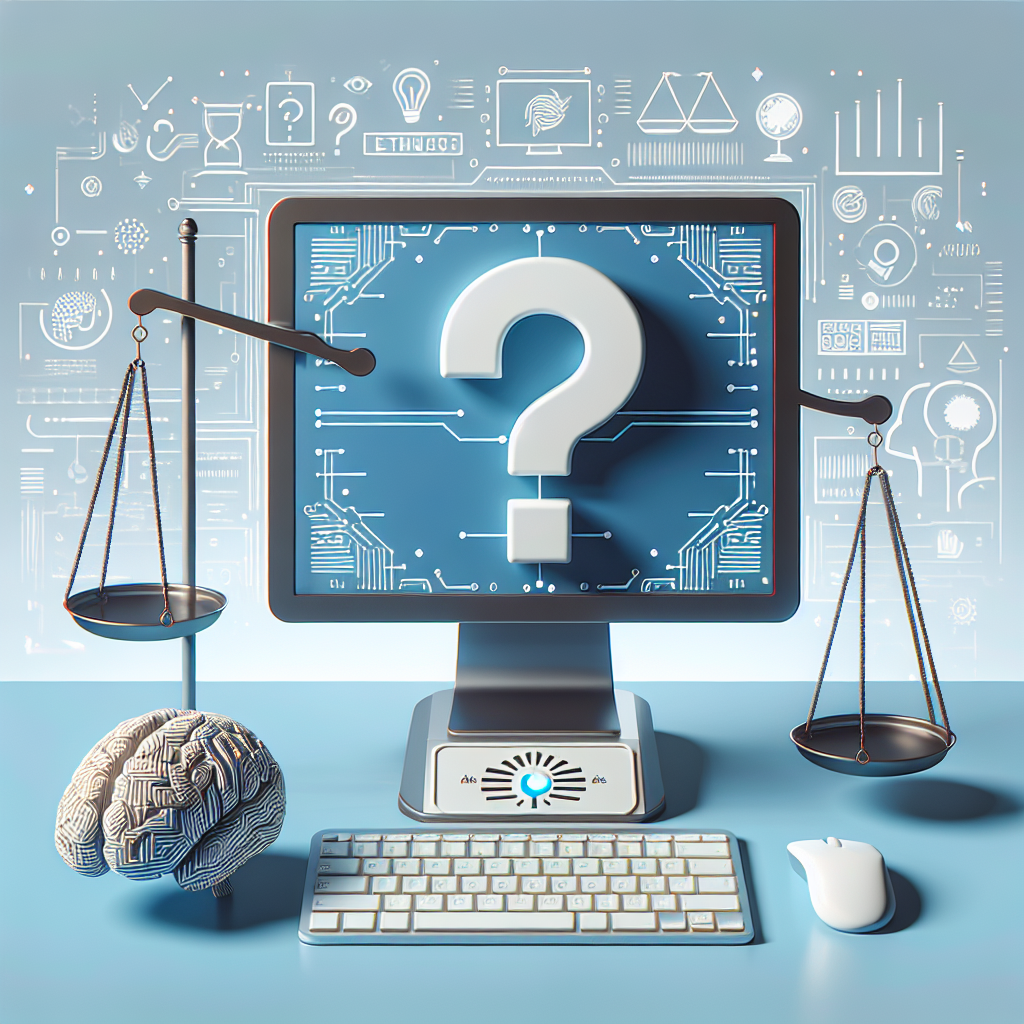The Ethical Dilemmas of AI Software
Artificial Intelligence (AI) has become an integral part of our daily lives, from virtual assistants like Siri and Alexa to self-driving cars and personalized recommendations on streaming platforms. While AI has the potential to revolutionize industries and improve efficiency, it also raises significant ethical concerns. As AI continues to advance, it is crucial to address the ethical dilemmas that come with its development and deployment.
One major ethical dilemma of AI software is the issue of bias. AI algorithms are trained on vast amounts of data, which can include biases and prejudices present in society. This can lead to discriminatory outcomes, such as facial recognition systems that are less accurate for people of color or loan approval algorithms that favor certain demographics over others. Addressing bias in AI requires careful consideration of the data used to train algorithms and ongoing monitoring to ensure fair and equitable outcomes.
Another ethical dilemma of AI software is the potential for job displacement. As AI technology becomes more advanced, there is concern that it will replace human workers in various industries. While AI has the potential to automate repetitive tasks and improve efficiency, it also raises questions about the impact on employment and income inequality. Addressing this dilemma requires thoughtful planning and investment in retraining programs to help workers transition to new roles in the AI-driven economy.
Privacy is another significant ethical concern related to AI software. AI systems often collect and analyze vast amounts of personal data to make predictions and recommendations. This raises questions about who has access to this data, how it is used, and how it is protected from misuse. Building trust with users and ensuring transparency in data collection and usage are essential steps in addressing privacy concerns related to AI software.
One of the most pressing ethical dilemmas of AI software is the issue of accountability. AI systems can make decisions autonomously based on complex algorithms, making it challenging to determine who is responsible for the outcomes. In cases where AI systems make errors or cause harm, it is essential to establish clear lines of accountability and mechanisms for addressing issues and providing redress to those affected.
In addition to these ethical dilemmas, AI software also raises concerns about potential misuse and unintended consequences. For example, the use of AI in autonomous weapons systems raises questions about the ethics of delegating life-and-death decisions to machines. There is also concern about the potential for AI to be used for surveillance and control, raising questions about individual freedoms and human rights.
As AI technology continues to advance, it is essential to address these ethical dilemmas to ensure that AI systems are developed and deployed responsibly. This requires collaboration between technologists, policymakers, ethicists, and other stakeholders to establish guidelines and best practices for the ethical development and use of AI software.
FAQs
Q: What is bias in AI software, and why is it a concern?
A: Bias in AI software refers to the tendency of algorithms to produce discriminatory outcomes based on factors such as race, gender, or socioeconomic status. This is a concern because it can lead to unfair and inequitable treatment of individuals and groups.
Q: How can bias in AI software be addressed?
A: Bias in AI software can be addressed through careful selection of training data, ongoing monitoring of algorithmic outcomes, and diversity in the development and deployment of AI systems. It is essential to ensure that AI algorithms are fair and unbiased in their decision-making processes.
Q: What are the ethical concerns related to job displacement by AI software?
A: The ethical concerns related to job displacement by AI software include the impact on employment and income inequality, as well as the need for retraining programs to help workers transition to new roles in the AI-driven economy. It is essential to consider the social and economic implications of AI technology on the workforce.
Q: How can privacy concerns related to AI software be addressed?
A: Privacy concerns related to AI software can be addressed through building trust with users, ensuring transparency in data collection and usage, and implementing robust data protection measures. It is essential to prioritize the privacy and security of personal data in the development and deployment of AI systems.
Q: What is accountability in the context of AI software?
A: Accountability in the context of AI software refers to the responsibility for the outcomes of AI systems, including errors and harm caused by autonomous decision-making processes. Establishing clear lines of accountability and mechanisms for addressing issues are essential steps in ensuring that AI systems are developed and deployed responsibly.
In conclusion, the ethical dilemmas of AI software are complex and multifaceted, requiring careful consideration and collaboration among stakeholders to address. By addressing issues such as bias, job displacement, privacy, accountability, and potential misuse, we can ensure that AI technology is developed and deployed in a way that is ethical and responsible. It is essential to prioritize ethical considerations in the development and deployment of AI software to ensure that it benefits society as a whole.

